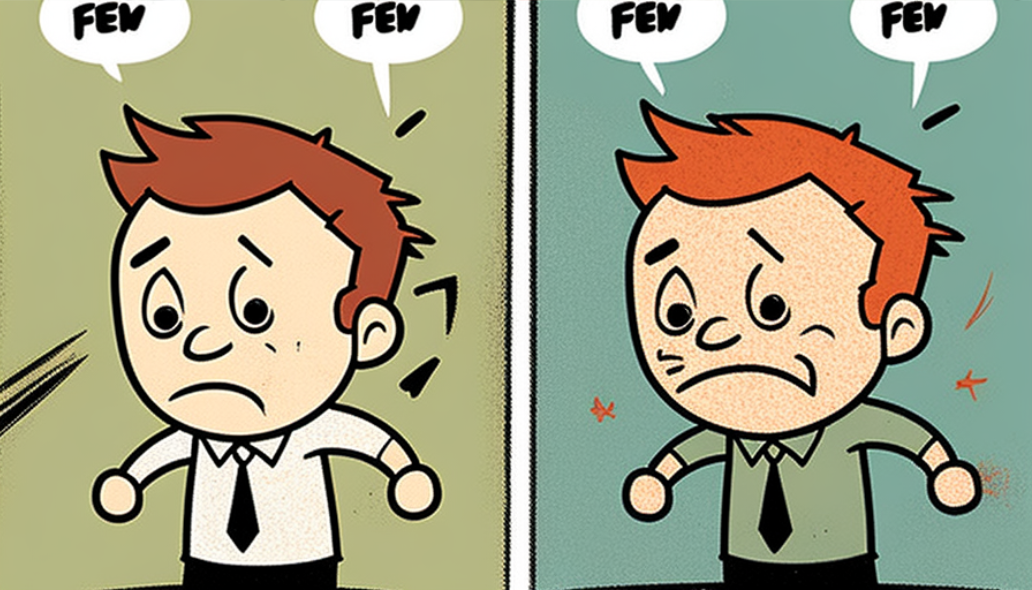Filing a homeowners insurance claim can feel like stepping into a labyrinth of legal jargon and complex procedures, especially when you’re grappling with the aftermath of property damage. Despite the vital role insurance plays in safeguarding your home and finances, many homeowners find themselves woefully unprepared when it comes to understanding their policy. In fact, a common oversight is neglecting to read the policy altogether, relegating it to the dusty depths of a filing cabinet until disaster strikes.
However, ignorance is not bliss when it comes to insurance policies. These documents are your roadmap to protection, outlining your rights, coverage limits, deductibles, and exclusions. Imagine trying to navigate a foreign country without understanding the local language – attempting to negotiate with your insurance carrier without comprehending your policy is akin to venturing into uncharted territory blindfolded.
To truly grasp the nuances of your policy, you must be willing to delve deep into its intricacies. This means reading every clause, scrutinizing every provision, and deciphering every paragraph with unwavering attention to detail. Consider it a crash course in insurance literacy – a journey that requires you to read the policy front to back, upside down, and perhaps even in Spanish, if necessary. Every argument you make, every claim you assert, should be rooted in the specific language of your policy – a veritable arsenal of knowledge to bolster your position and protect your interests.
Table of contents
Not Understanding Your Policy
In the realm of homeowners insurance, ignorance is not bliss – it’s a liability waiting to be exploited. Yet, all too often, homeowners unwittingly find themselves at a disadvantage due to their lack of familiarity with their insurance policy. Despite its pivotal role in safeguarding their most valuable asset, many homeowners overlook the importance of understanding their policy, opting instead to rely on vague assurances and cursory glances.
This oversight can have dire consequences, particularly when it comes time to file a claim. Without a comprehensive understanding of their policy, homeowners are ill-equipped to navigate the intricacies of the claims process effectively. They may find themselves at the mercy of their insurance carrier, forced to accept subpar settlements or navigate a labyrinth of red tape without a guiding light.
To avoid falling into this trap, homeowners must adopt a proactive approach to policy comprehension. This entails more than just a cursory glance – it requires a deep dive into the intricacies of the policy language, a willingness to decipher complex clauses, and a commitment to advocating for their rights. From coverage limits to exclusions, every aspect of the policy holds valuable insights that can mean the difference between a successful claim and a denied one.
So, before disaster strikes, take the time to read your policy – front to back, upside down, and in every language it’s written in. Arm yourself with knowledge, and empower yourself to navigate the claims process with confidence and clarity. Your home and your finances depend on it.
Failing to Document Damage
When disaster strikes, one of the most critical steps in the insurance claims process is documenting the damage to your property. Yet, surprisingly, this is where many homeowners falter. While snapping a few photos may seem like a sufficient effort, the reality is that thorough documentation is essential for substantiating your claim and ensuring you receive fair compensation.
The number one rule when it comes to documenting damage is simple: take pictures, and lots of them. Every inch of damage should be captured from multiple angles, providing a comprehensive visual record of the destruction. Remember, you can never have too much evidence, so err on the side of excess when it comes to photography.
However, it’s crucial to recognize that documenting damage isn’t solely the homeowner’s responsibility. Your insurance company also has a duty to investigate your loss thoroughly. While you’re busy capturing images of the damage, your insurer should be conducting their own assessment, verifying the extent of the destruction, and evaluating the validity of your claim.
This dual responsibility underscores the importance of cooperation and communication between homeowners and their insurance carriers. By working together to document the damage, both parties can ensure a thorough and accurate assessment, laying the foundation for a smooth claims process and a fair resolution.
Delaying the Claims Process
In the aftermath of property damage, time is of the essence. Every moment that passes without action increases the risk of further harm to your home and exacerbates the financial burden of repairs. That’s why it’s crucial for homeowners to act swiftly and decisively when filing an insurance claim, ensuring that the process moves forward without unnecessary delays.
Contrary to popular belief, the onus for prompt action rests primarily on the insurance company, not the homeowner. While homeowners are obligated to prevent further damage to their property, they should not be responsible for initiating or expediting the claims process. Instead, it’s the insurance company’s duty to promptly respond to claims, conduct thorough investigations, and provide timely updates to policyholders.
Unfortunately, delays in the claims process are all too common, leaving homeowners in limbo and exacerbating their stress and financial strain. Whether due to bureaucratic red tape, understaffed claims departments, or sheer negligence, these delays can significantly impact the outcome of a claim, leading to frustration and dissatisfaction for policyholders.
In the face of such delays, homeowners must assert their rights and hold their insurance company accountable. By demanding timely responses, escalating concerns to higher authorities within the company, and seeking assistance from regulatory agencies if necessary, homeowners can ensure that their claims are processed promptly and fairly. After all, when it comes to protecting your home and your financial security, there’s no time to waste.
Making Permanent Repairs Too Soon
In the aftermath of property damage, the urge to restore your home to its pre-loss condition is entirely understandable. However, making permanent repairs too soon can have unintended consequences, potentially jeopardizing your insurance claim and leaving you responsible for the cost of repairs.
Before embarking on any repair work, it’s essential to obtain approval from your insurance company on the scope of the loss and the proposed repairs. Your insurer will likely want to assess the damage firsthand, verify the cause of loss, and evaluate the estimated cost of repairs before authorizing any work to begin.
Failing to obtain approval from your insurance company before making repairs could result in your claim being denied or undervalued. Your insurer may argue that they were not given the opportunity to assess the damage properly or that the repairs were unnecessary or excessive.
To avoid these pitfalls, always consult with your insurance company before undertaking any repair work. Provide them with detailed documentation of the damage, including photos, estimates from contractors, and any other relevant information. By working collaboratively with your insurer, you can ensure that your claim is handled efficiently and that you receive fair compensation for your losses.
Underestimating the Value of Your Claim
When filing a homeowners insurance claim, it’s essential to accurately assess the value of your losses to ensure you receive fair compensation. However, many homeowners make the mistake of underestimating the value of their claim, either due to a lack of understanding of their policy coverage or because they fail to account for all the damage.
It’s important to remember that you are entitled to the actual cash value (ACV) of the damaged property, not just what it might cost to rebuild or replace it. The ACV is based on the current market value of the property at the time of the loss, taking into account factors such as depreciation and wear and tear.
To determine the ACV of your losses, you’ll need to conduct a thorough inventory of the damaged property, including its age, condition, and replacement cost. This may involve obtaining estimates from contractors, appraisers, or other qualified professionals to ensure you accurately assess the value of your claim.
Underestimating the value of your claim can result in you receiving less compensation than you’re entitled to, leaving you to cover the remaining costs out of pocket. To avoid this scenario, take the time to thoroughly evaluate your losses and consult with professionals as needed to ensure you receive fair and adequate compensation from your insurance company.
Not Keeping Receipts
One common mistake homeowners make when filing an insurance claim is failing to keep track of receipts related to their loss. Whether it’s receipts for temporary repairs, additional living expenses, or replacing damaged items, proper documentation is essential for ensuring you receive fair compensation from your insurance company.
To avoid this mistake, it’s crucial to establish a system for organizing and tracking all relevant receipts. Consider creating an Excel spreadsheet to record each expense, including details such as the date of purchase, description of the item or service, cost, and payment status. This spreadsheet can serve as a comprehensive record of your expenses and help ensure that nothing slips through the cracks during the claims process.
In addition to organizing receipts, it’s essential to keep track of the status of each expense, including whether it has been reimbursed by your insurance company and the date of reimbursement. This information can help you identify any outstanding expenses and follow up with your insurer as needed to expedite the reimbursement process.
By maintaining thorough documentation of your expenses and tracking payment status, you can ensure that you receive fair compensation for your losses and avoid any disputes with your insurance company over reimbursement.
Closing
In conclusion, navigating the homeowners insurance claim process can be complex and challenging, but avoiding these common mistakes can help streamline the process and maximize your chances of a successful outcome. By understanding your policy, documenting damage thoroughly, avoiding delays, seeking expert advice when needed, accurately assessing the value of your claim, and keeping careful records of your expenses, you can protect your interests and ensure you receive fair compensation from your insurance company.
Remember, your insurance policy is there to protect you in times of need, but it’s up to you to advocate for yourself and ensure that you receive the benefits you’re entitled to. By following the tips outlined in this blog post and staying proactive throughout the claims process, you can navigate the process with confidence and get your life back on track as quickly as possible.
Source: https://www.forbes.com/advisor/homeowners-insurance/claim-mistakes/
FAQ
Common mistakes include not understanding the insurance policy, failing to document damage thoroughly, delaying the claims process, making permanent repairs too soon, underestimating the value of the claim, and not keeping receipts.
To avoid delays, promptly report the damage to your insurance company, follow up regularly, and ensure all documentation is provided promptly. Additionally, avoid making permanent repairs until the insurer inspects the damage.
Understanding the policy ensures you know what is covered, your deductibles, and any limitations or exclusions. This knowledge empowers you to make informed decisions and advocate for fair compensation.
Follow up regularly, escalate concerns to higher authorities within the company, and consider filing a complaint with your state’s insurance department if necessary.
Thoroughly document all damage, keep receipts, seek expert advice if needed, and negotiate assertively with your insurance company.
Documentation provides evidence to support your claim and ensures you receive fair compensation for your losses. Take photos or videos, create an inventory of damaged items, and keep records of all communication with the insurer.
Receipts serve as proof of expenses related to the claim, including temporary repairs, additional living expenses, or replacing damaged items. Organize receipts and track payment status to ensure nothing slips through the cracks.
It’s generally advisable to wait for the insurer to inspect the damage before making permanent repairs to avoid claim denial or undervaluation.
Thoroughly assess the damage, consider working with a public adjuster, and ensure you claim the actual cash value (ACV) of your losses.
Seek expert advice if you’re unsure about your rights, need help understanding your policy, or require assistance navigating the claims process.
Use Excel spreadsheets to organize receipts and track payment status, dates reimbursed, and ensure nothing is overlooked.
Be assertive, present evidence, know your policy, and consider seeking assistance from a public adjuster if needed.
Contact higher authorities within the company, such as the customer service department or management, and provide detailed documentation to support your case.
Contact your state’s insurance department and submit a complaint along with all relevant documentation. While immediate action may not be taken, it signals to the insurer that you’re serious about resolving the issue.
Staying organized ensures all documentation is readily available, facilitates communication with the insurer, and increases the likelihood of a successful claim outcome.




